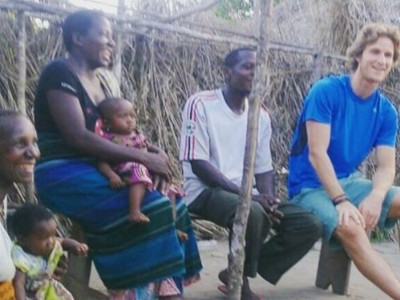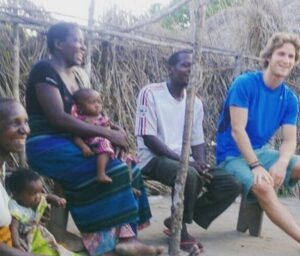Notes from the Road: Communities on a Human Scale
 In many developing countries, communities are built on a more satisfying scale. Things are built on a “human scale” because most people don’t own motorized transport. In other words, everything you might need on a given day is within walking distance – friends, food, medicine, beer, school, privacy, religion, etc.
In many developing countries, communities are built on a more satisfying scale. Things are built on a “human scale” because most people don’t own motorized transport. In other words, everything you might need on a given day is within walking distance – friends, food, medicine, beer, school, privacy, religion, etc.
People can – and do – live their whole lives without using motorized transport. Houses are close enough that neighbors are in shouting distance but have enough space to keep livestock and a small farm. Streets are wide enough for single lane traffic but are primarily used for foot and bicycle traffic. There are no zoning regulations dictating land use, so people are free to use land as they wish. Thus, if a market opportunity comes up people can pursue it from their front lawn or their living room. This means that fruit, vegetables, meat, drinks, and other daily essentials are usually just a couple houses away.
The social implications of living on this smaller scale are significant. Communities become more tightly knit when the environment encourages us to interact with our neighbors. People feel less isolated and lonely when they can walk down the street, see familiar faces, and have a conversation.
Maybe the best way to explain this is to imagine a Wednesday evening where you’ve gotten off work early and are home at 5pm. What to do? It’s too early for dinner and you’re not sure which of your friends will also be off work already. In Mkyashi, Kindwitwi, Peaksneng, and other communities Better Lives works in around the world, you could simply walk down the street and be assured of seeing people you know who. You certainly won’t feel isolated.
The American preoccupation with large homes, large lawns, large shopping centers, and large cars leaves large spaces in our lives and can make it difficult to connect to our neighbors and communities.

